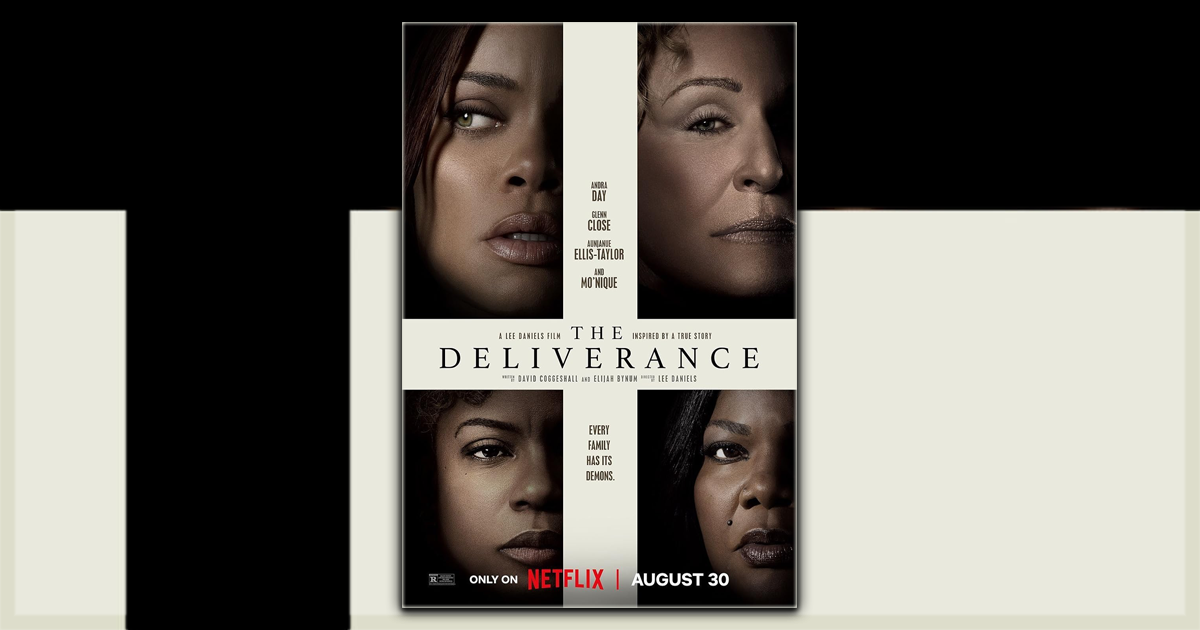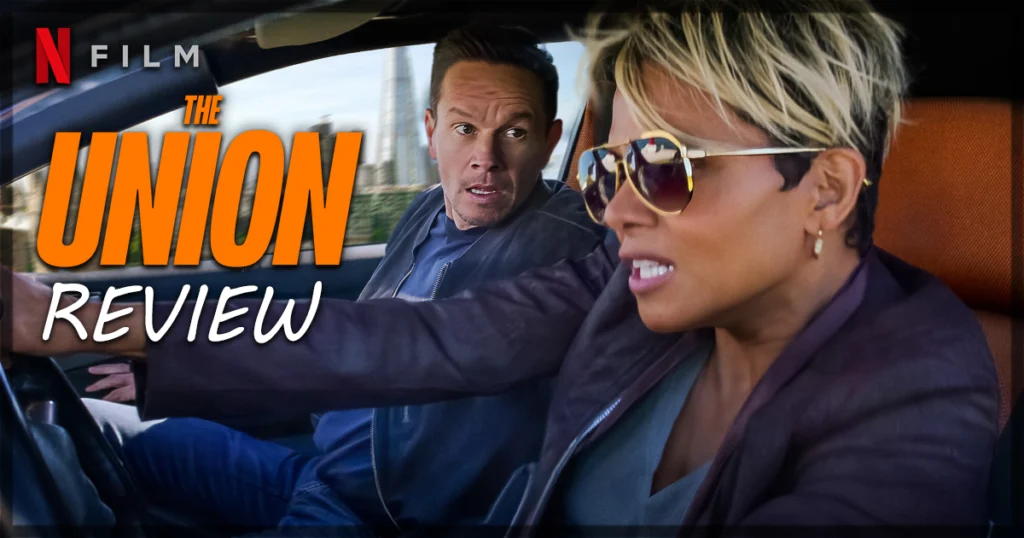About two weeks ago, Netflix released yet another original flick titled The Union. In my review of that film, I mentioned that it exemplified the worst characteristics often associated with the term “Netflix flick,” which carries a rather negative connotation, at least in the online world. This problem isn’t exclusive to just one genre – horror often suffers from the same formulaic symptoms. Therefore, expectations weren’t high for The Deliverance, despite its excellent cast led by Andra Day – who worked with director Lee Daniels on The United States vs. Billie Holiday – and Glenn Close (Fatal Attraction).
Ebony Jackson (Day), a single mother struggling to face her personal demons, moves with her three children in hopes of starting a new life. But when strange occurrences inside the house begin to raise suspicions with Child Protective Services and threaten the family’s balance, Ebony quickly finds herself in a battle for her life and the souls of her children. The script, written by David Coggeshall (Orphan: First Kill) and Elijah Bynum (Magazine Dreams), recalls countless horror stories that follow a strikingly similar narrative premise.
What sets these movies apart from one another? What can The Deliverance do to overcome the genre’s cliches and avoid falling into the boring predictability of typical formulas? Technical aspects can help, but to become a memorable piece of filmmaking and storytelling, it’s essential to build interesting characters and surround them with genuinely thought-provoking themes to captivate viewers looking for something at least a bit different from the thousands of other flicks that repeat the exact same plot and character development points.
Initially, The Deliverance shows promise. With very strong performances from Day and Close – executing everything convincingly regardless of the dialogue or actions – Daniels presents a complex family with many dysfunctional issues, well before any supernatural situation hits them. From domestic violence to child abuse, touching on the important and sensitive topic of disadvantaged families and their dynamics, as well as the injustices committed by discriminatory judgments from social agents, there are many essential issues and messages the movie attempts to explore and convey.
Unfortunately, as The Deliverance dives deeper into the exponential absurdity of its supernatural elements, all of its potential fades. Daniels tries his best to avoid using the term “exorcism,” but he can’t escape the limiting narrative barriers of this type of horror story, nor does he embrace it as something that can be entertaining, leaving the film lacking an immersive atmosphere and more impactful sequences. The third act becomes so messy and insane that it becomes accidentally funny due to hilarious lines of dialogue, overuse of forced cliches, and poor visual effects.
The Deliverance fails to engage the audience in a suspenseful environment or even win over the more “simplistic” viewers with cheap scenes featuring effective jump scares or sequences that are at least somewhat frightening. Daniels starts with a complex, honest family drama and ends with a supernatural thriller so over-the-top that it removes the seriousness of the previously addressed themes, leading to moments of laughter that should not be remotely amusing.
Final Thoughts on The Deliverance
The Deliverance holds significant narrative potential but gets lost in a failed attempt to balance serious family drama with absurd supernatural horror. What could have been a thematically powerful movie gradually turns into an awkward and, at times, unintentionally comedic experience. Despite notable performances from Andra Day and Glenn Close, Lee Daniels fails to build an immersive atmosphere and maintain the narrative cohesion necessary to create a memorable story, leaving the sense that its impact could have been much greater if it had opted for a more restrained, less formulaic approach.
Rating: D+
The Deliverance is now streaming on Netflix.
Learn more about the film, including how to watch it, at the Netflix site.
You might also like…
‘The Union’ Review: A Netflix Flick That Proves Forgettable is Worse than Bad


